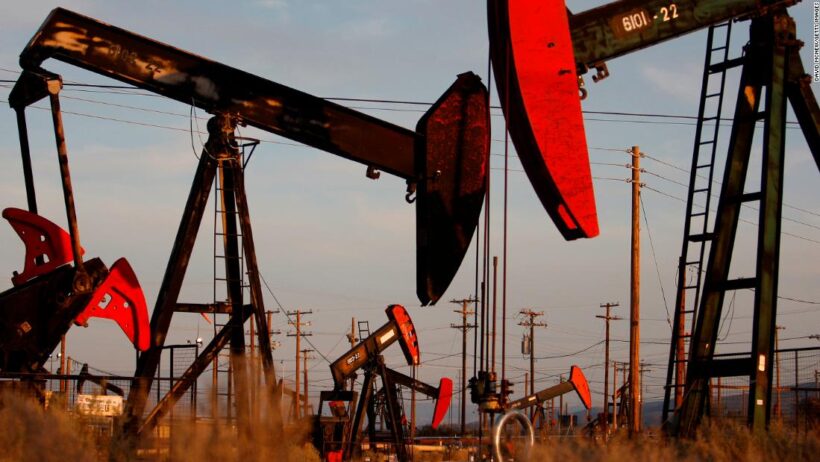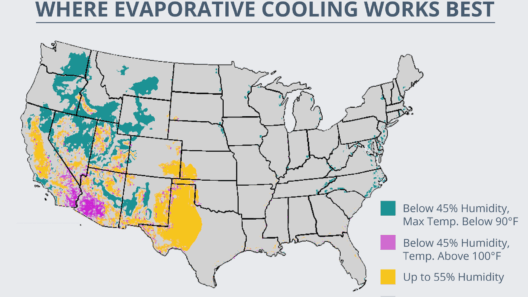As we delve into the intricate relationship between oil drilling and climate change, one cannot help but ponder: Does the extraction of petroleum accelerates the insatiable march of climate change? This seemingly straightforward inquiry necessitates a critical examination of multifaceted scientific evidence, economic imperatives, and the environmental ramifications of fossil fuel dependency. This issue stirs a polarizing debate, igniting impassioned arguments on both sides.
At the crux of the discussion lies the fundamental understanding of climate change itself. The Earth’s climate has always fluctuated; however, the current trajectory, largely attributed to anthropogenic greenhouse gas emissions, has elicited alarm. The burning of fossil fuels—including oil—produces carbon dioxide (CO2), a principal greenhouse gas that contributes to the greenhouse effect, trapping heat in the atmosphere. The sheer volume of oil extracted and consumed globally inexorably ties drilling activities to the escalating crisis facing our planet.
Proponents of oil drilling often argue that oil is an essential energy source, creating jobs and fostering economic growth. Indeed, the oil industry is a critical player in the global economy, providing millions of livelihoods and funding extensive technological advancements. Those in favor of continued drilling contend that oil remains a practical solution to the world’s energy demands, particularly in developing nations where access to alternative energy sources is limited. However, such an view is increasingly untenable when juxtaposed with overwhelming scientific data linking fossil fuel consumption to climatic disruption.
Moreover, the ethical paradox of fossil fuel dependency cannot be ignored. As the repercussions of climate change manifests—rising sea levels, extreme weather patterns, and biodiversity loss—one must question the morality of prioritizing short-term economic gain over long-term planetary health. Methane, another potent greenhouse gas emitted during oil extraction and transportation, amplifies the argument against drilling. Even though its atmospheric lifetime is shorter than CO2, its warming potential is significantly greater, adding further urgency to the conversation around oil drilling and its role in climatic peril.
The crux of the debate pivots on the understanding of how oil drilling directly ignites climate change. A plethora of studies affirm that oil extraction is not merely an ancillary contributor to climate disruption; it is a catalyst. For example, the leaks and spills associated with drilling operations introduce further ecological distress. The soil contamination, waterway pollution, and destruction of local habitats can suffocate biodiversity, undermining the ecosystem services that are crucial for sustaining life.
As scientists continue to unveil correlations between fossil fuel exploitation and climate change, the judicial system now finds itself entangled in this narrative. Recent court rulings have mandated that government agencies rigorously evaluate the potential climate impacts of their oil drilling decisions. This unprecedented legal scrutiny signifies a monumental shift in acknowledging the gravity of climate change—an aspiration for a more conscientious approach to resource extraction. While the oil industry may assert that optimistic regulations can be navigated, the question remains: Is this really a sustainable path forward?
One cannot disregard the innovative strides being made in renewable energy technologies. The paradox of drilling for oil amidst the burgeoning green energy revolution poses a challenging question for stakeholders. As societies globally prioritize sustainability, will the relentless pursuit of fossil fuels hinder progress? Transitioning to a low-carbon economy is not merely aspirational; it is imperative. Renewable energy sources such as solar, wind, and geothermal are proving to be viable alternatives to fossil fuels. Investing in these technologies could catalyze economic growth while reducing dependency on oil—a win-win scenario lessening both environmental and fiscal strain.
While the argument for immediate economic benefits from oil drilling may appear robust, the larger context cannot be ignored. The climate crisis is imposing escalating costs on society, manifesting through natural disasters and public health risks. The financial implications of these extreme events often outweigh the short-term economic boosts heralded by oil drilling. Thus, a cost-benefit analysis reveals that pursuing fossil fuels often sets the stage for greater calamities. In essence, the short-term gains of drilling pale compared to the long-term ramifications of an increasingly volatile climate and its associated expenses.
In conclusion, the query of whether oil drilling accelerates climate change is not merely a matter of opinion; the evidence is becoming irrefutable. A confluence of scientific findings indicates that oil extraction is directly implicated in the exacerbation of climate conditions. While the arguments surrounding economic necessity and job creation are valid, they must be re-evaluated within the framework of long-term sustainability and environmental health. The challenge remains palpable and complex: societies must navigate the tumultuous waters of energy demands, economic growth, and environmental stewardship in a way that fosters ecological resilience. The time has come to brave this evolution, and to redouble efforts in transitioning towards sustainable energy solutions. The stakes are high, and the consequences of inaction are dire. A thoughtful, informed, and decisive approach could pave the way towards a more sustainable future for both our planet and its inhabitants.








